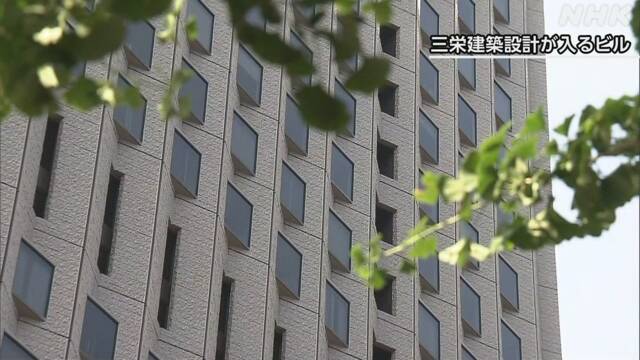In the case of Sanei Architects & Sekkei, a real estate company listed on the prime market of the Tokyo Stock Exchange, receiving a recommendation from the Tokyo Metropolitan Public Safety Commission based on the Ordinance on the Elimination of Organized Crime Groups after it was pointed out that the former president provided money to gang members, a third-party committee established by the company concluded that the former president was aware that part of the construction cost would go to gang members.
In June, Sanei Architects, a real estate company in Tokyo, received a recommendation from the Tokyo Metropolitan Public Safety Commission not to provide profits based on the Tokyo Metropolitan Government's Ordinance on the Elimination of Organized Crime Groups after the founder's former president gave approximately 190.6 million yen to gang members.
In response to this, the company established a third-party committee composed of lawyers to conduct an investigation and released a report on the 15th.
According to the report, the former president ordered the demolition of the building from a contractor designated by the gang members around 2020, and instructed the company to issue a check to pay the contractor in March 2021 and a check that was supposed to be given to the gang member.
Based on the circumstances in which the cheques were issued, the report concluded that "the former president can admit that he cooperated with the cheque while knowing that it would be given to gangsters."
The report notes that the former president and gangsters had known each other for more than 3 years.
The former president resigned from his position as president and also as a director in November last year for "personal reasons."
Sanei Architectural Design Co., Ltd. says, "We take the facts certified by the third-party committee seriously, and apologize for the concern and inconvenience caused to all those involved."
Delisted due to "relationship with antisocial forces" judgment
Sanei Architects & Design is listed on the Prime Market, the highest level of the Tokyo Stock Exchange, but TSE requires listed companies not to have any relationships with antisocial forces in its Securities Listing Regulations.
If the Tokyo Stock Exchange determines in its examination that the company has a relationship with antisocial forces and has significantly damaged the trust of shareholders, it may be delisted.

